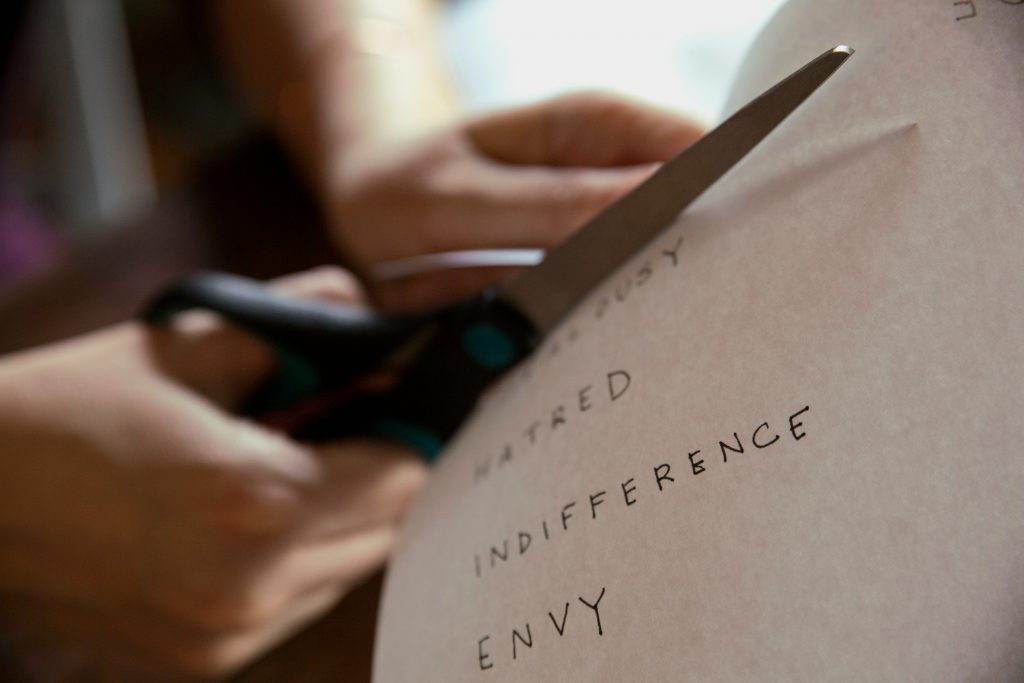One of the strangest things about humans is what they reveal about themselves. Never is this more apparent than at a school Consultation Evening, when the parents or guardians of a child sit opposite their child’s teachers to discuss their child’s progress or – at times – to reveal in glorious technicolour their warped sense of reality and chaotic lives to the person sitting opposite them.
Recently, The Huffington Post invited readers in the teaching profession to reveal the most remarkable things that parents have said to them over the years. “When teachers go into their profession, they do so with the expectation that they will have to deal with some student misbehaviour. … But when you speak with teachers about the behaviours that cause them the most distress, it’s not the students who are to blame, it’s their parents — some of whom seem to badly need a lesson in courtesy, respect and common sense.”
“I had a parent tell me that their child … was a genius and I just wasn’t smart enough to comprehend that” said one. “I had a parent tell me that they didn’t need to teach their child morals, as that is what school should be teaching them,” reported another. Over the years, I also experienced some quite remarkable condescension from some of the adults I had to deal with, although nothing quite this bad: “I once had a parent tell me, ‘I worked in daycare too, then I decided to get a career’,” reported one pre-school teacher with 17 years’ experience. This comment is particularly revealing of a fact that became apparent during the pandemic- how some people see schools as there to provide day care for their children, not an education.
Generally speaking, such people are so rare and so jaw-droppingly ridiculous that I have wiped the recollection of most such comments from my memory. The majority of parents are respectful and only too supportive of their child’s teachers. One memory I do maintain, however, is not of a child’s parents setting out to undermine me, but rather seeming to reveal such malfunction in their own lives that I have never forgotten it. This happened in my very first year of teaching, which is now 25 years ago, so I feel pretty safe telling the story. It was my very first Consultation Evening, one of hundreds that I would attend, and it remains the one I have never forgotten. It was also the time when I truly learnt the definition of passive-aggressive behaviour, or what in modern parlance is often referred to as gas-lighting.
The parents of this particular child were divorcing but were attending the Consultation Evening together with their child. There is nothing unusual about this and most manage to do so with only the faintest whiff of awkwardness in the air. I remain convinced that the overwhelming majority of parents want the best for their children and that includes protecting them from the worst of the fall-out when it comes to a separation. These parents, however, appeared to be going through a particularly acrimonious separation and there had been some confusion (possibly confounded by at least one of the people involved) about to whom communications regarding their child’s progress should be sent. This was made clear to me the moment that the family sat down – the child deposited like a military buffer zone between the individuals at war – and informed me that this was the case. Not a great start.
Neither parent would look at or speak to the other parent, so it was close to impossible to have a normal conversation that would include their child in the process without extreme awkwardness. Nevertheless, I pressed on as best I could, taking the opportunity to explain how well their child had been doing recently (remarkably well, given the family situation in which they found themselves). Just as I was beginning to round up my report, I was interrupted by the child’s mother, who appeared agitated and unable to contain herself any longer.
“I wish to make one thing absolutely crystal clear,” she barked, pointing her finger at me. “I wish to clarify the fact that I have not – nor have I ever – been suffering from any kind of mental illness. There is nothing wrong with me!”
There was a long, mortifying pause.
“Um. Okay,” I said, unsure where this was going but very sure that I didn’t like it or have any idea of how to handle it.
“So whatever has been said about me – and I mean by anyone – is not true. I want it wiped from your records!”
Personally, I was unaware of anything on anyone’s record about mental health issues, and I was genuinely at a loss as to what to say. Now, with more experience, I realise that I should have said something like “you clearly have some concerns, so can I suggest that you speak to …” and pass the buck onto someone considerably higher up the pay grade than I was (which, at that time, was pretty much everybody; I suspect the assistant caretaker earned significantly more than I did). From my recollection, however, I was incapable of anything other than opening and closing my mouth like a dying fish.
“I hope I’ve made myself clear,” snapped the mother, at which point her soon-to-be-very-ex-husband piped up.
“As I was saying,” he remarked, smoothly, “I’m keen to be kept informed of any ways in which I can help with vocabulary learning. Do you have any particular suggestions?”
There was another silence, while I stared at him, then at his trembling wife. It was as if she had not spoken. She did not exist. Her presence was not merely irrelevant, it was a non-fact. He had not heard her, for she was not there.
He continued.
“Just keep me in the loop with regards to anything I can do to help in that department.”
So, that was my stark introduction to the psychological concept of passive aggressive behaviour. I could immediately begin to see where this woman’s apparent neurosis was coming from. When you have someone who quite literally acts as if you have been expunged from the universe, where do you go other than the path of frustration, protestation and rage? What choice do you have other than to act out? I tried to imagine a lifetime of being ignored, of being talked over, of being erased and expunged. I’m not sure I would have handled it with any more dignity or diplomacy than she was managing.
To this day I will never know the full truth behind what was going on in that family, but I do know that the acrimonious divorce took them down a path of heart-breaking consequences for their child. Since they were unable to agree on custody and access and since the child was old enough for the courts to take their individual preferences into account, the child was forced to testify in open court about which parent they would prefer to live with and why. Quite how a couple who once made vows to each other and chose to bring a child into this world can end up so horribly broken I struggle to imagine, but the consequences for all concerned were devastating. So, more than any ignorant insults hurled at me and the profession I represent over the years – and there have been a few – it is this early experience that I recall with genuine regret.







